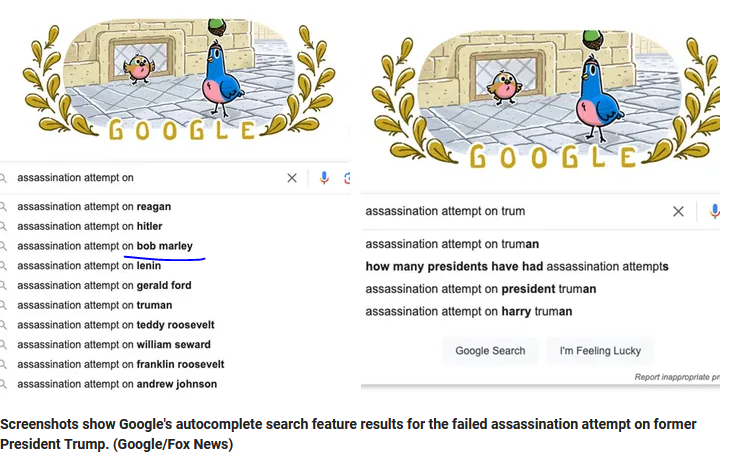College Board, the nonprofit folks who bring us the SAT exams many institutions use for college/university entrance assessment and the Advanced Placement exams used by many high schools to assess how well students have done in their advanced placement courses, has dumbed down made it easier to pass its AP tests. A passing score on the AP exam is a 3 on a scale of 1 to 5; as a result of the changes, it’s easier now for a student to score at least that 3.
AP US History teacher Mark Reindl said that, after the change, 76% of his students passed the AP History exam, against his prior years’ average 40%.
That was an eye opener. One thing I’ve read a lot in military history is to train like you fight[.]
For College Board, though, there’s this:
The College Board has spent years lobbying state legislators to require public universities to offer credit for students who do well on its 40 AP exams, which include the core subjects of math, English, science, and social studies, as well as foreign languages and electives like psychology and art history.
…
Each exam requires a fee of just under $100, paid for by students’ families or, in some cases, school districts or states seeking to expand access to the programs.
But the nonprofit’s move is not a business move, it insists. The organization argues its courses are still more difficult than some entry-level college classes. Isn’t that a sad commentary on the rigors of colleges and universities.
Jon Boeckenstedt, Oregon State University Vice Provost of Enrollment Management:
It is hard to argue with the premise of AP, that students who are talented and academically accomplished can get a head start on college[.]
Indeed. But maybe if this sort of exam is useful for assessing a student’s readiness for college, College Board could structure its exams along the lines of this 1895 8th Grade Final Exam that Salina, KS used. It’s a straightforward 4-hour exam across several subject areas (which College Board could break out into several exams for assessing high school student performance and readiness), and it’s one that requires examinees to think about each answer, not just regurgitate some parcel of rote learning.
Grammar (Time, one hour)
- Give nine rules for the use of Capital Letters.
- Name the Parts of Speech and define those that have no modifications.
- Define Verse, Stanza and Paragraph.
- What are the Principal Parts of a verb? Give Principal Parts of do, lie, lay and run.
- Define Case, Illustrate each Case.
- What is Punctuation? Give rules for principal marks of Punctuation.
- 7-10. Write a composition of about 150 words and show therein that you understand the practical use of the rules of grammar.
Arithmetic (Time, 1.25 hours)
- Name and define the Fundamental Rules of Arithmetic.
- A wagon box is 2 ft. deep, 10 feet long, and 3 ft. wide. How many bushels of wheat will it hold?
- If a load of wheat weighs 3942 lbs., what is it worth at 50 cts. per bu, deducting 1050 lbs. for tare?
- District No. 33 has a valuation of $35,000. What is the necessary levy to carry on a school seven months at $50 per month, and have $104 for incidentals?
- Find cost of 6720 lbs. coal at $6.00 per ton.
- Find the interest of $512.60 for 8 months and 18 days at 7 percent.
- What is the cost of 40 boards 12 inches wide and 16 ft. long at $.20 per inch?
- Find bank discount on $300 for 90 days (no grace) at 10 percent.
- What is the cost of a square farm at $15 per acre, the distance around which is 640 rods?
- Write a Bank Check, a Promissory Note, and a Receipt.
U.S. History (Time, 45 minutes)
- Give the epochs into which U.S. History is divided.
- Give an account of the discovery of America by Columbus.
- Relate the causes and results of the Revolutionary War.
- Show the territorial growth of the United States.
- Tell what you can of the history of Kansas.
- Describe three of the most prominent battles of the Rebellion.
- Who were the following: Morse, Whitney, Fulton, Bell, Lincoln, Penn, and Howe?
- Name events connected with the following dates: 1607, 1620, 1800, 1849, and 1865?
Orthography (Time, one hour)
- What is meant by the following: Alphabet, phonetic orthography, etymology, syllabication?
- What are elementary sounds? How classified?
- What are the following, and give examples of each: Trigraph, subvocals, diphthong, cognate letters, linguals?
- Give four substitutes for caret ‘u’.
- Give two rules for spelling words with final ‘e’. Name two exceptions under each rule.
- Give two uses of silent letters in spelling. Illustrate each.
- Define the following prefixes and use in connection with a word: Bi, dis, mis, pre, semi, post, non, inter, mono, super.
- Mark diacritically and divide into syllables the following, and name the sign that indicates the sound: Card, ball, mercy, sir, odd, cell, rise, blood, fare, last.
- Use the following correctly in sentences, Cite, site, sight, fane, fain, feign, vane, vain, vein, raze, raise, rays.
- Write 10 words frequently mispronounced and indicate pronunciation by use of diacritical marks and by syllabication.
Geography (Time, one hour)
- What is climate? Upon what does climate depend?
- How do you account for the extremes of climate in Kansas?
- Of what use are rivers? Of what use is the ocean?
- Describe the mountains of N.A.
- Name and describe the following: Monrovia, Odessa, Denver, Manitoba, Hecla, Yukon, St. Helena, Juan Fernandez, Aspinwall and Orinoco.
- Name and locate the principal trade centers of the U.S.
- Name all the republics of Europe and give capital of each.
- Why is the Atlantic Coast colder than the Pacific in the same latitude?
- Describe the process by which the water of the ocean returns to the sources of rivers.
- Describe the movements of the earth. Give inclination of the earth.
It is, indeed, highly useful to the extent of being critical that students train—learn—like they’ll fight—perform in the real world of adulthood. To the extent students can’t pass this older jr high exam, or a collection of them based on this exam, that’s the extent of the failure of the teachers and school districts to insist on actual knowledge and thinking skills; it’s not a failure of the students, although they’re the ones who suffer the consequences.


